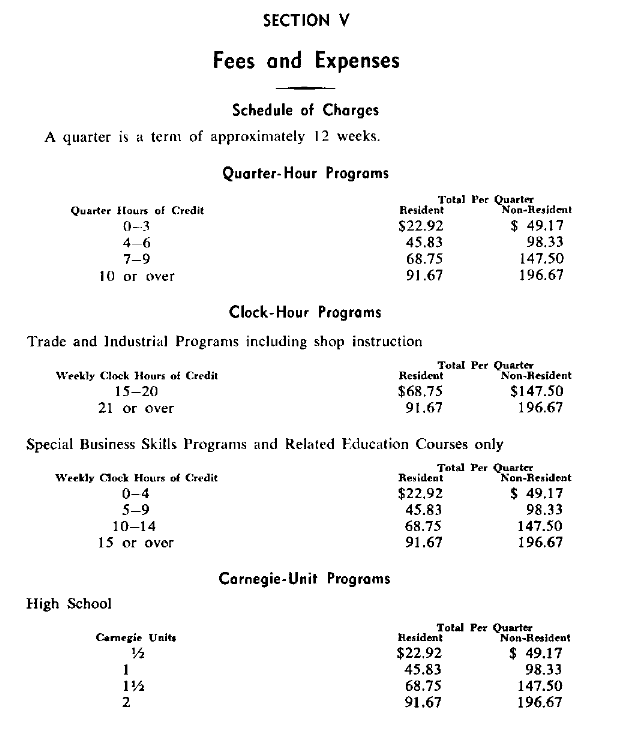Here are some photos recently found among George Crane’s parents photos from the fall of 1967.
Fees and Expenses – 1966
Ferris State College
College Bulletin
Volumn 43, 1966


For current academic year tuition rates to go:
http://www.ferris.edu/HTMLS/administration/businessoffice/20172018rategreensheet.pdf
Industrial Electronics Technology xx
Taken from Ferris Catalog, 1968, page 206/207
Modern industry relies to a great extent on Industrial Engineering in the production of its products and services. Economic selection of materials and processes, efficient plant layout and produciton methods, and control of quality and costs, are a few of the many carefully planned factors that contribute to the over-all sucess of the industrial enterprise, and are the responsibility of what is generally called “Industrial Engineering.” Types of organizations utilizing the Industrial Engineer’s services are manufacturing concerns, hospitals, supermarkets, management consujltants, in fact, any organization in business to produce worthwhile goods or services. Larger concerns may have an internal Industrial Engineering department employing up to 200 or more Industrial Engineers. Others, by reason of size, or product, or service may require just a few persons, or they may rely on outside consultants.
The Industrial Production Technology curriculum is designed to prepare students to enter the Industrial Engineering field, either as assistants to Industrial Engineers, or to perform one or more of the Industrial Engineering functions under adequate supervision.
The Ferris program places strong emphasis on methods improvement nad work measurement, in order to prepare the graduate to take over definite job responsibilities in motion and time study departments in industry. In addition, students receive a broad background in other laspectsof Industrial Engineering, including production planning and control, inspection systems and quality control, plant layout and materials handling, cost reduction and control, and industrial safety.
Students seeking to qualify for the Associate in Applied Science degree in Industrial Production Technology must complete the course requirements as listed below, for a minimum of 101 quarter hours of credit.
Hello world!
Welcome to WordPress. This is your first post. Edit or delete it, then start writing!






